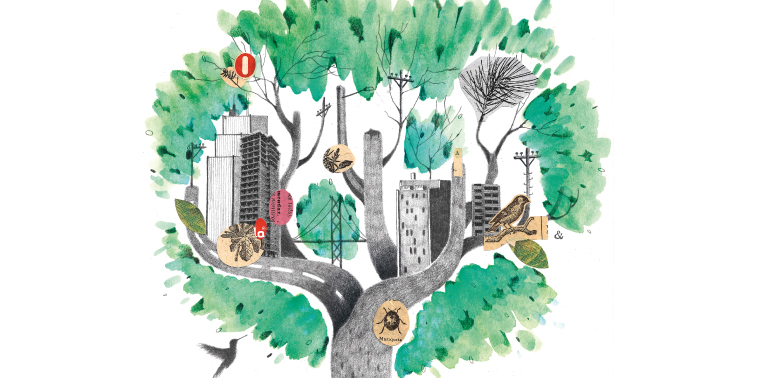Maharashtra's Budget 2017 - Focus on Urban Infrastructure
 The Maharashtra Budget for 2017-18 has a significant allocation for basic infrastructure development, to cover Energy, Transport & Urban services like Water supply, Sanitation etc. Being a very urbanized state, the focus on road connectivity by developing good road network is highlighted by the fact that 7000 cr is allocated for Road development & Improvement. In next two years 10000 km of roads is expected to be completed. Plus an additional 35 crore if allocated for gadgets and equipment that will reduce road accidents.
The Maharashtra Budget for 2017-18 has a significant allocation for basic infrastructure development, to cover Energy, Transport & Urban services like Water supply, Sanitation etc. Being a very urbanized state, the focus on road connectivity by developing good road network is highlighted by the fact that 7000 cr is allocated for Road development & Improvement. In next two years 10000 km of roads is expected to be completed. Plus an additional 35 crore if allocated for gadgets and equipment that will reduce road accidents.Notable amongst the infrastructure projects in the Nagpur-Mumbai expressway. This is an important project to connect Maharashtra’s hinterland with Mumbai-Pune region. This will bring prosperity to areas that are affected by drought.
The allocation for Airports and Metro projects (710 crore allocation) is made in the Budget. This is an important aspect for a state that has maximum urbanization in the country and has a significant contribution to its revenue by service sectors that require this infrastructure. Hence, upgrading existing airports and completing Metro projects in cities like Mumbai, Pune and Nagpur is prioritized by this budget. Airports are proposed at Shirdi (Rs.50 crores), Karad, Amaravti, Solapur and Chandrapur. Pune airport, however, did not get a mention in FM’s speech. Ports are important and necessary infrastructure. With Maharashtra’s expansive coastline, as a state there should be a focus on development of minor ports. Allocation of Rs.72 crores has been made for the 8 jetties under the Sagarmala project and about Rs.70 crores for Ports, but Maharashtra should focus more on developing minor ports along the Western coast of India. An allocation of Rs.50 crores has been made for Maha Railways Infra Development Company, to expedite development of rail network in cooperation with Union Government.
There is an allocation of 361 crores for Renewable Energy and Rs.525 crores specifically for Solar Energy projects with installed capacity of 750MW, which will contribute considerably to the 175GW target set by the Union Government by 2022. Maharashtra, infact, has the highest target of Renewable Energy and this allocation will ensure that Maharashtra’s share of renewable energy increases and India moves toward cleaner energy. No specific mention was made by the FM for the MAHADiscom and its upgradation to cut down on the Distribution and Transmission losses. As the share of Renewable Energy in the state increase, the MahaDiscom may face a further loss of revenues and may need to be reformed.
Promotion and encouragement to Green Buildings is announced in the Budget which should propel this sector and thus save water and energy in urban areas.
A total allocation of Rs. 1870 crore has been made for Urban infrastructure under AMRUT. Apart from this allocation, under the SmartCities Mission, the 7 cities (Phase I and II) Rs. 1600 crore allocation is made, which is quite significant. Looking at the urbanization in Maharashtra and that it drives Maharashtra’s economy, this investment in urban infrastructure will help acceleration of economy. With this allocation, cities in Maharashtra will be able to move towards better infrastructure and good quality of life.
There is an additional allocation of Rs.1100 crores for small towns in Maharashtra, particularly for nagarparishads and towns that do not come under the Smart Cities Mission. An allocation for Rs.1605 crores is made for Clean Cities under the Swach Bharat Abhiyan, which will contribute in making cities and towns cleaner. A major portion of this allocation should go towards establishing waste disposal systems for solid waste and sewage. This allocation will indirectly help in reducing environmental pollution due to waste.
Last but not the least, the announcement that a Special Purpose Vehicle (SPV) MahaInfra will be formed to accelerate and undertake physical infrastructure projects in Mahararashtra. This SPV will hope to build infrastructure faster and with less delays and more transparency, something that BJP government is keen to implement. The SPV will also allow the government larger borrowings and private investment for infrastructure projects in Maharashtra. However, the BJP government should tread this path carefully and with caution and the SPV instrument should not lead to tax increases, tariff increases or road toll increases later.


Comments
Post a Comment